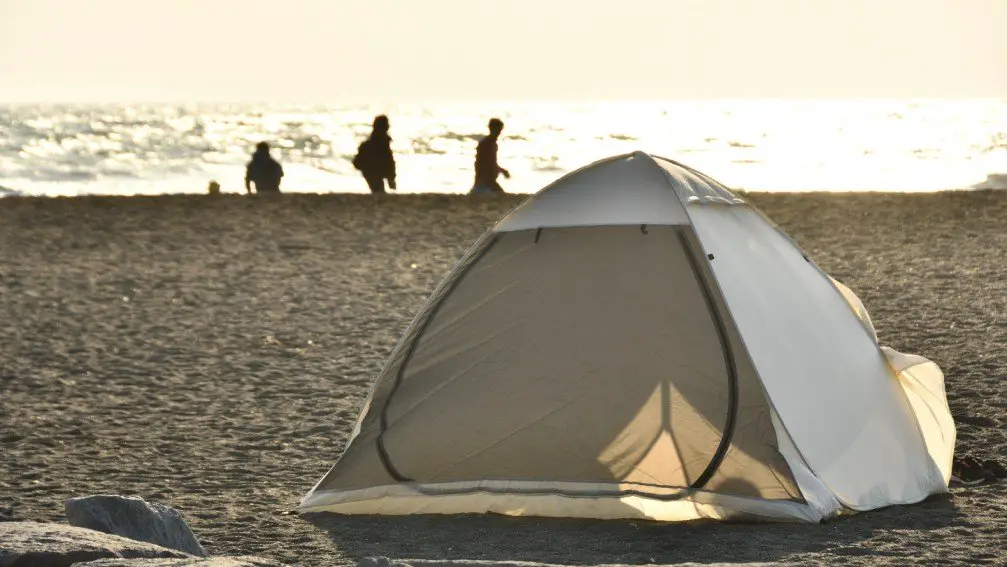Camping on the beach can be illegal, depending on local regulations. Always check specific beach rules before setting up camp.
Beach camping offers a unique, immersive experience in nature. It’s a way to enjoy the serene sounds of waves and breathtaking views. However, legal restrictions vary by location. Some beaches permit camping with proper permits, while others strictly prohibit it to protect wildlife and preserve the environment.
Violating these rules can result in fines or other penalties. It’s crucial to research and follow local laws to ensure a safe and legal camping experience. Respecting the environment and local regulations helps preserve these beautiful spots for future visitors. Always prioritize responsible and legal camping practices.
Legal Nuances Of Beach Camping
Beach camping laws are different in each region. Some beaches allow camping while others do not. Always check local rules before setting up your tent. Many beaches have specific hours for camping.
Protected areas often have strict rules against camping. These areas aim to protect wildlife and nature. Camping on private property without permission is illegal. Always seek permission from the landowner.
Public Vs. Private Shores
Public beaches are open to everyone. You can usually camp there. Private beaches are different. They belong to someone. You need permission to camp there. Without it, you may get in trouble. Always check the rules first. Respect the rights of the owners.
Look for signs to know beach ownership. Public beaches may have signs that say “Public Beach.” Private beaches may have “No Trespassing” signs. Respect these signs. They help you know where you can camp. Local maps can also help you. They show public and private lands. Ask locals if you are unsure. They often know the best spots.
Permits And Regulations
Permits are often needed for beach camping. Check with local government offices. Some beaches have online permit applications. Visit park websites for more information. Rangers can also help you with permits. Always carry your permit while camping.
Always clean up your campsite. Do not leave trash behind. Fires are often restricted. Use only designated fire pits. Keep noise to a minimum. Respect wildlife and their habitats. Stay in designated camping areas. Follow all posted signs and guidelines.
Environmental Considerations
Follow the Leave No Trace principles to protect the beach. Pack out all trash and belongings. Do not leave any food scraps behind. Respect natural features and wildlife habitats. Use a designated campsite if available. Avoid damaging plants and trees. Keep fires in controlled areas. Extinguish fires completely before leaving.
Camping on the beach can affect wildlife. Animals might eat human food and get sick. Disturbing nests and habitats can harm animals. Lights and noise can scare away wildlife. Always observe animals from a distance. Do not feed or touch wildlife. Respect their space and needs.
Safety And Precautions
Camping on the beach can be illegal depending on local regulations. Check local laws and posted signs before setting up your tent. Always prioritize safety and follow guidelines to avoid fines or legal issues.
Tides And Weather Conditions
Always check the tides before setting up camp. High tides can flood your campsite. Be aware of sudden changes in weather conditions. Storms can create dangerous situations. Bring a weather radio for updates. Set up your tent above the high tide line. This keeps you safe from rising water. Secure your tent well to avoid wind damage.
Wildlife Encounters
Camping on the beach can lead to wildlife encounters. Animals like raccoons and seagulls may visit your camp. Store food in sealed containers to avoid attracting them. Never feed wild animals. Feeding them can make them aggressive. Be cautious around marine animals like jellyfish or crabs. Some can sting or bite if disturbed. Always keep a safe distance from wildlife.
Etiquette And Best Practices
Always keep noise levels low. This ensures a peaceful environment for everyone. Set up your camp at a distance from others. This gives everyone their personal space. Avoid using bright lights at night. It can disturb other campers. Keep pets under control. They should not bother other beachgoers. Respecting others ensures a better experience for all.
Always bring trash bags with you. This helps in collecting all your waste. Do not leave any trash behind. This keeps the beach clean for everyone. Use biodegradable products. These are better for the environment. Dispose of waste in designated areas. This ensures proper waste management.
Consequences Of Illegal Camping
Illegal camping on the beach can result in heavy fines. Authorities may issue tickets to offenders. These fines can range from $100 to $500. Repeat offenders might face higher penalties. In some cases, camping gear may be confiscated. Legal troubles can also follow. Courts may impose community service hours. All these consequences can ruin your vacation.
Illegal camping harms the environment. It can damage dunes and wildlife habitats. Trash left behind can pollute the ocean. This affects both marine life and beachgoers. Illegal camping can also lead to erosion. Beaches may become less accessible over time. These impacts take years to repair. Many beaches may impose stricter rules as a result.
Alternatives To Beach Camping
Nearby campgrounds offer a great alternative. These spots provide designated camping areas. You will find restrooms and picnic tables. Some campgrounds even have fire pits. Rangers often patrol these areas for safety. Enjoy nature without breaking any laws.
Day trips can be a fun alternative. Spend a day at the beach and return home. Pack a picnic lunch and enjoy the sun. You can swim, play games, or just relax. Bring plenty of water and sunscreen. Day trips are easy and legal.
FAQs:
Can You Put A Tent On A Beach?
Yes, you can put a tent on a beach, but check local regulations first. Some beaches may require permits.
Is It Legal To Camp On The Beach In Florida?
Camping on the beach in Florida is generally illegal. Some designated areas allow it with permits. Always check local regulations.
What Is The New Camping Law In Texas?
The new camping law in Texas prohibits camping on public property without permission. Violators face fines and possible arrest.
Can You Sleep On The Beach In Florida?
Sleeping on the beach in Florida is generally not allowed. Most beaches have strict regulations against overnight camping. Check local laws.
Camping on the beach can be a wonderful experience. Always check local regulations to avoid fines or legal issues. Respect the environment and other visitors. By doing so, you ensure a safe and enjoyable adventure for everyone. Happy camping and enjoy the natural beauty of our beaches!



